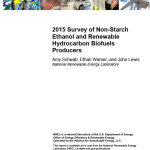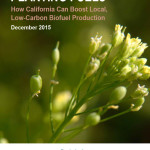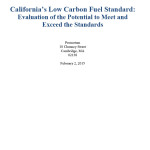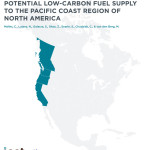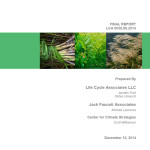Pacific Coast Action Plan: Envisioning a low carbon future for the west coast
Yesterday governors of California, Oregon and Washington joined together with the Premier of British Columbia to sign a Pacific Coast Action Plan on Climate & Energy. The four west coast governments agreed to account for carbon, adopt or maintain low-carbon fuel standards, and harmonize programs within the region, among other specific actions.
The plan set forth a vision for reducing greenhouse gas emissions from the transportation sector, to support more renewable energy, and lower the impact of buildings. The transportation goal is supported by actions to implement zero emission vehicle programs, integrated high-speed rail, and support for emerging markets.
I was present at the San Francisco event, and the room was abuzz with the excitement of the historic nature of such a pact. Leaders indicated that this was merely a first step, and next they would be enlisting other states and nations to join the pact. Already the leaders represent a region that is effectively the world’s fifth largest economy.
What this means for biofuels is a huge demand signal for the lowest carbon fuels out there. While California and British Columbia will maintain their programs, Oregon and Washington have been called to adopt their own fuel standards. We don’t know yet whether this will happen by legislation or executive action, nor the specific targets. But we do know that a linked program across the coast could be a big boon to the biomass-rich Northwest, which would be poised to produce a fair shake of the fuel required.
I was inspired by the vision these leaders described yesterday, and impressed at how critical they saw this plan to the region’s economy. Other business leaders present all described the ways in which a healthy environment protects various industries, and how our transition to low carbon technologies provides huge opportunities for economic development. I was particularly intrigued by a representative from Taylor Shellfish Farms in Washington, who expressed how important stymieing ocean acidification is to protecting the shellfish industry across the coast.
We can do more by joining together, as our leaders demonstrated yesterday. Our problem is linked, and so must be our solutions, which is exactly why the Pacific Coast Collaboration is a monumental first step.
Filed in: Blog • Mary Solecki







